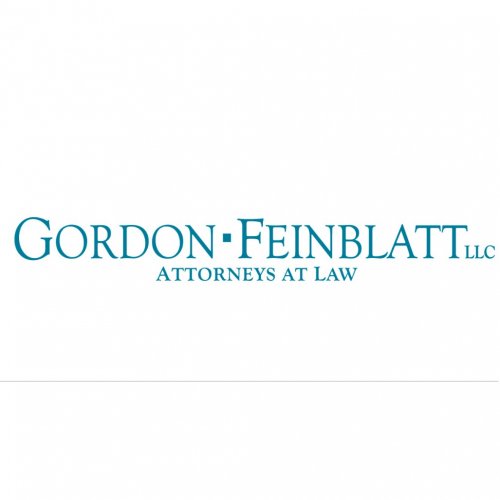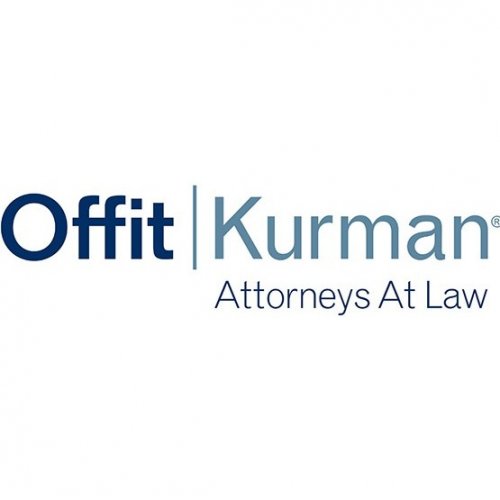Best Corporate Governance Lawyers in Baltimore
Share your needs with us, get contacted by law firms.
Free. Takes 2 min.
List of the best lawyers in Baltimore, United States
About Corporate Governance Law in Baltimore, United States
Corporate governance refers to the systems, practices, and processes by which businesses are directed and controlled. In Baltimore, United States, corporate governance covers the legal and ethical framework that guides the management and oversight of corporations, especially with regards to accountability, fairness, and transparency in a company’s relationship with its stakeholders. This encompasses a wide range of entities, including public and private corporations, limited liability companies, and nonprofits. Corporate governance in Baltimore is shaped by a combination of Maryland state laws, federal regulations, and common business practices, ensuring that companies operate efficiently and ethically.
Why You May Need a Lawyer
There are several situations where seeking legal advice about corporate governance becomes crucial, including:
- Starting a new business and determining the appropriate structure and governance policies
- Dealing with shareholder disputes or disagreements among board members
- Responding to allegations of breach of fiduciary duty or conflicts of interest
- Complying with reporting requirements under Maryland and federal laws
- Drafting or reviewing bylaws, board resolutions, and codes of conduct
- Handling mergers, acquisitions, or restructuring activities
- Creating or revising risk management and compliance programs
- Ensuring appropriate disclosure and transparency with stakeholders
- Navigating regulatory investigations or enforcement actions
- Managing executive compensation and corporate social responsibility policies
An attorney can help protect your organization’s interests, guide you through complex legal requirements, and help prevent costly mistakes.
Local Laws Overview
Baltimore corporations are primarily governed by state law, notably the Maryland General Corporation Law (MGCL) which sets the framework for forming, operating, and dissolving corporations in the state. Below are key aspects to consider:
- Corporate Structure: Guidelines for organizing corporations, LLCs, and nonprofits are defined at the state level. The Baltimore City Code may impose additional requirements, especially for specific business activities.
- Director and Officer Duties: Directors and officers owe fiduciary duties of care and loyalty to the corporation and its shareholders. A violation can result in legal liability.
- Shareholder Rights: Maryland law outlines shareholder rights related to voting, information access, and the ability to file derivative suits if the board fails in its duties.
- Meetings and Records: The MGCL prescribes requirements for board and shareholder meetings, as well as maintenance and inspection of corporate records.
- Reporting and Disclosure: Businesses must make regular filings with the Maryland Department of Assessments and Taxation, including annual reports. Public companies are also subject to federal Securities and Exchange Commission (SEC) rules.
- Regulatory Compliance: Corporations must comply with state and federal regulations, including environmental, labor, and antitrust laws relevant to their operations in Baltimore.
Frequently Asked Questions
What is corporate governance and why is it important?
Corporate governance is the framework of rules, practices, and processes that direct and control a company. It is important because it ensures that companies operate ethically, make sound decisions, protect stakeholder interests, and comply with legal obligations.
What laws regulate corporate governance in Baltimore?
Corporate governance in Baltimore is mainly regulated by the Maryland General Corporation Law (MGCL), applicable sections of the Baltimore City Code, and relevant federal laws such as the Securities Exchange Act.
What are the fiduciary duties of directors and officers?
Directors and officers owe the corporation a duty of care (acting with reasonable diligence) and a duty of loyalty (putting the corporation’s interests above personal interests).
How are corporate disputes, such as shareholder disagreements, typically resolved?
Disputes can be resolved through negotiation, mediation, arbitration, or litigation. Sometimes shareholder agreements will set out specific procedures for resolving disputes.
Does my corporation need to hold annual meetings in Baltimore?
Yes, Maryland law requires that corporations hold an annual meeting for shareholders. Details, including timing and notice, should be set out in your bylaws.
What are the disclosure requirements for companies incorporated in Baltimore?
Companies must file annual reports and maintain accurate records. Public companies face additional federal SEC disclosure obligations regarding financial status, governance changes, and material events.
Can officers and directors be held personally liable for corporate decisions?
Yes, under certain circumstances, such as breaching fiduciary duties or engaging in fraud, directors and officers may face personal liability.
What is a derivative lawsuit?
A derivative lawsuit is a legal action brought by a shareholder on behalf of the corporation, usually against directors or officers for failing to act in the company’s best interests.
How does Baltimore handle conflicts of interest in corporate governance?
Maryland law requires directors and officers to disclose conflicts of interest. Certain transactions involving conflicts may be voidable unless fully disclosed and approved by disinterested directors or shareholders.
Are there special rules for nonprofits in Baltimore regarding governance?
Yes, nonprofits must comply with both Maryland nonprofit statutes and IRS requirements for tax-exempt status, including rules on board composition, transparency, and reporting.
Additional Resources
- Maryland Department of Assessments & Taxation - For business filings and annual reports
- Maryland State Bar Association - For legal guidance and attorney referrals
- Baltimore Development Corporation - For business resources in Baltimore
- U.S. Securities and Exchange Commission (SEC) - For federal governance and reporting rules
- Maryland Nonprofits - For guidance on nonprofit governance and compliance
- Local law libraries - For public access to statutes, regulations, and other legal materials
Next Steps
If you are facing a corporate governance issue in Baltimore or simply want to ensure your company is compliant, consider these steps:
- Assess your organization’s current governance structure and documents
- Gather relevant records, such as bylaws, meeting minutes, and filings
- Identify the specific issues or questions you have
- Consult with a qualified business or corporate attorney experienced in Baltimore and Maryland law
- Follow up on your lawyer’s advice and maintain ongoing compliance with local and federal governance requirements
Remember, proactive legal advice can help prevent disputes, support informed business decisions, and protect your company’s reputation and assets in the long term.
Lawzana helps you find the best lawyers and law firms in Baltimore through a curated and pre-screened list of qualified legal professionals. Our platform offers rankings and detailed profiles of attorneys and law firms, allowing you to compare based on practice areas, including Corporate Governance, experience, and client feedback.
Each profile includes a description of the firm's areas of practice, client reviews, team members and partners, year of establishment, spoken languages, office locations, contact information, social media presence, and any published articles or resources. Most firms on our platform speak English and are experienced in both local and international legal matters.
Get a quote from top-rated law firms in Baltimore, United States — quickly, securely, and without unnecessary hassle.
Disclaimer:
The information provided on this page is for general informational purposes only and does not constitute legal advice. While we strive to ensure the accuracy and relevance of the content, legal information may change over time, and interpretations of the law can vary. You should always consult with a qualified legal professional for advice specific to your situation.
We disclaim all liability for actions taken or not taken based on the content of this page. If you believe any information is incorrect or outdated, please contact us, and we will review and update it where appropriate.












